‘My Vote, My Right’: Karnataka Civil Groups Unite Against SIR Amid Fears of Voter Deletions and Democratic Erosion
Civil society warns of mass disenfranchisement under Election Commission’s Special Intensive Revision; calls it ‘NRC in disguise’
Bengaluru, Oct. 10, 2025: A coalition of civil society groups, political representatives, rights activists, writers, and student organisations have come together in Bengaluru to oppose the Special Intensive Revision (SIR) of electoral rolls announced by the Election Commission of India (ECI). At a packed round table meeting held at the Legislators’ House [LH], the participants unanimously condemned the move and launched a statewide campaign titled ‘My Vote, My Right’, vowing to resist what they describe as an “undemocratic and exclusionary exercise” reminiscent of the National Register of Citizens (NRC).
A Rising Storm Over Voting Rights
Speakers at the meeting warned that the SIR, being implemented in Karnataka for the first time, could lead to mass deletion of voter names and potential disenfranchisement of marginalized communities, including Dalits, Adivasis, Muslims, women, and migrant workers.
The participants expressed shock that, under the new guidelines, even the Voter ID issued by the ECI itself is not considered valid proof in the revision process. Critics allege that the procedure mirrors the CAA-NRC framework, transferring the burden of proof from the state to the citizen and thereby threatening India’s long-cherished principle of universal adult suffrage.
The ECI’s 2025 SIR manual reportedly allows Electoral Registration Officers (EROs) to refer “suspected foreign nationals” to authorities under the Citizenship Act, 1955—a clause activists say opens the door for arbitrary exclusions and harassment.
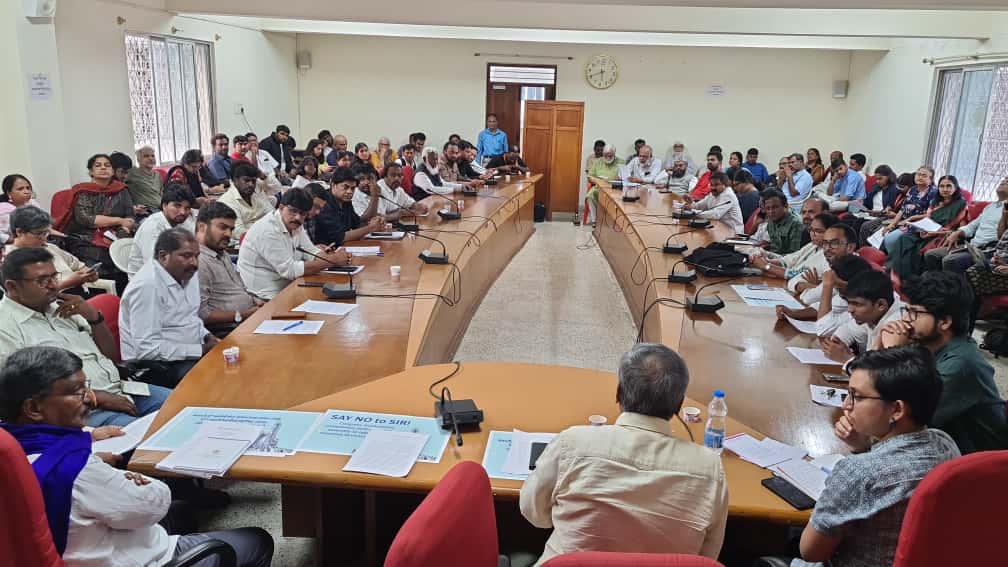
Media Updates: +91-93531 21474 [WhatsApp] | indianowme@gmail.com
“NRC Under Another Name”: Advocates Sound the Alarm
Advocate Vinay Sreenivasa, a member of Bahutva Karnataka, drew direct parallels between the SIR and the NRC, calling the process “deeply dangerous and unconstitutional.”
“The entire basis of SIR follows the same logic as NRC. Until recently, it was the Election Commission’s duty to prove that a voter is ineligible. Now, the burden falls on citizens to prove they are eligible. This reversal could lead to harassment and mass disenfranchisement of the poor and marginalized,” he said.
Sreenivasa added that the ECI appears to have become “a tool of the ruling government,” alleging that the new process could selectively decide who remains on the voter list based on political loyalties.
“The government could now determine who is a voter and who is not. This is not voter purification—it’s voter manipulation,” he cautioned.
Drawing attention to Bihar’s recent experience, he said that the SIR process there led to the deletion of over 6.8 million voters, mostly from marginalized sections. “Karnataka must not repeat Bihar’s mistake,” he warned.
Echoes of Assam and the Fear of ‘Hindu Rashtra’
Sreenivasa also cautioned that the SIR framework aligns with the ideological push towards a “Hindu Rashtra,” warning of its long-term implications for citizenship.
“In Assam, countless Muslims born and raised there were declared doubtful voters. The same logic is being quietly implemented nationwide under different names,” he said.
“This is not an administrative exercise—it’s a political project to decide who belongs and who does not.”
Advocate Manavi: “SIR Undermines Universal Franchise”
Advocate Manavi, addressing the gathering, called the SIR a direct assault on India’s democratic foundations, as it shifts power from citizens to the Election Commission.
“The right to vote is not a privilege—it’s a constitutional guarantee. The SIR overturns this logic by making citizens prove their citizenship again, rendering even Voter IDs meaningless,” she said.
She noted that the SIR mirrors the Citizenship Amendment-NRC (CNRC) model, where proof requirements vary based on year of birth, potentially excluding millions.
Citing Bihar’s data, Manavi pointed out that only 30,000 out of 6.5 million deleted voters could appeal against their removal—“a chilling example of how administrative rules can erase democratic rights.”
“The Election Commission’s independence is already under strain, as seen in the electoral bonds case. If it now decides who is a valid voter, democracy itself is at risk,” she warned.
Manavi urged the Karnataka government to emulate Kerala by passing a legislative resolution rejecting the SIR, saying, “If some states show courage, others will follow. This can become a national movement to defend democracy.”
She also announced that the ‘My Vote, My Right’ coalition will soon launch a coordinated awareness campaign across Karnataka, uniting citizens, unions, and civil rights groups to safeguard the right to vote.
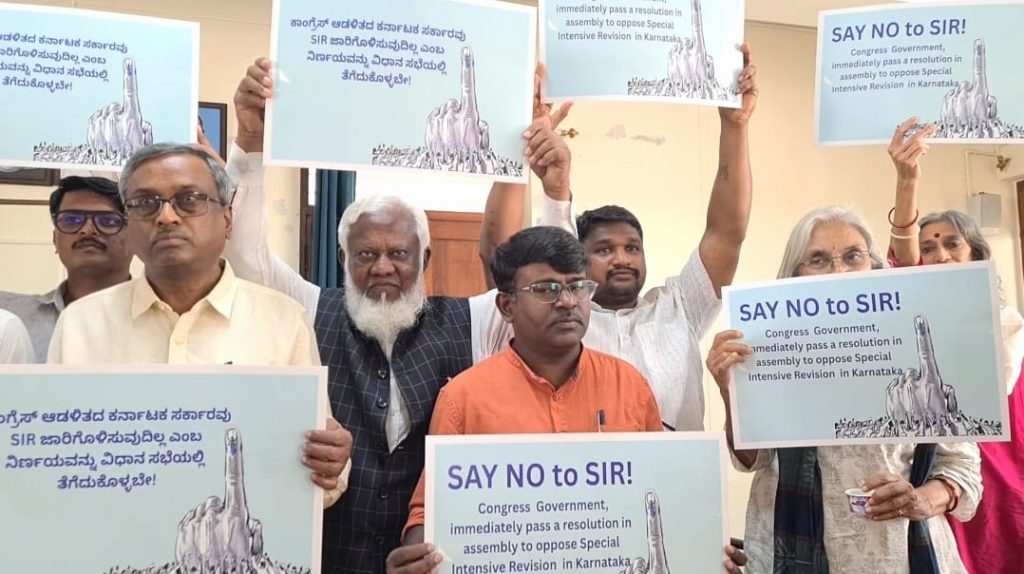
Bihar’s Bitter Lesson: A Warning for Karnataka
Clifton D’Rozario, State Secretary of the CPI(ML) Liberation, recounted Bihar’s experience with SIR, calling it a “humanitarian and democratic disaster.”
“Around 68 lakh names were deleted. Women, Dalits, Muslims, and migrant workers were the worst hit. Many had voter IDs and Aadhaar cards, but the ECI rejected them. Birth certificates, passports, and educational certificates were demanded—documents most poor people don’t possess,” he said.
D’Rozario described the move as a systemic exclusion of the powerless, adding that if the SIR continues unchecked, “it will turn elections into a privilege of the documented elite.”
“Voters Choose Leaders, Not the Other Way Around”
Indudara Honnapura, founder-member of Dalit Sangharsha Samiti (DSS), who presided over the meeting, gave a rousing call for unity.
“We must unite and involve all mass organisations. Voters choose their leaders, but now the Election Commission wants to choose the voters. This is an attack on democracy itself,” he said.
Honnapura urged all progressive and secular groups to come together under one banner, adding, “Only a strong, grassroots movement can stop this injustice.”
Rizwan Khan, Yusuf Kanhi, and Sripad Bhat: Calls for Awareness and Action
Rizwan Khan, a social activist from Ballari, stressed the need for political intervention.
“Our first step should be to urge the Karnataka Assembly to pass a resolution rejecting SIR—just as Kerala did. The fight begins in the legislature,” he said.
Yusuf Kanhi, Secretary of Jamaat-e-Islami Hind (Karnataka), emphasized the role of public awareness:
“Ordinary people don’t know how their rights are being taken away. We must educate them. The attack on democracy begins when the common person stops caring,” he said.
Writer and intellectual Sripad Bhat added,
“We saw how NRC-CAA protestors were targeted. We must be prepared, but we cannot be silent. The right to vote is the heart of every democracy.”
Bhat, echoing his earlier writings, described the SIR as “administrative exclusion cloaked in legal language,” warning that it risks erasing entire communities from the political map.
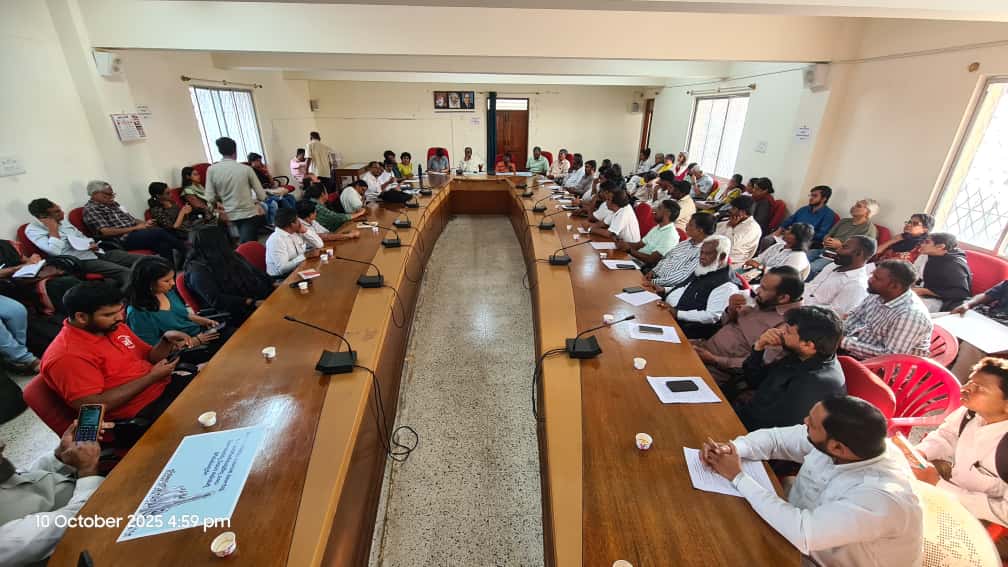
Civil Society’s Demands and Resolutions
The meeting concluded with a series of resolutions adopted unanimously:
-
Karnataka stands against SIR, calling it “NRC via the back door.”
-
A statewide campaign, “My Vote, My Right”, will be launched to mobilize public resistance.
-
The Karnataka Legislature must pass a resolution rejecting SIR, ensuring that the state protects its residents’ voting rights.
-
The Election Commission must hold a consultative meeting with civil society groups and ensure transparency in voter list preparation.
-
Voter lists must be made public in a digital, machine-readable format accessible to all citizens.
-
Results of ongoing inquiries into alleged voter deletions must be made public immediately.
A Broad Coalition for Democracy
Among the 20+ organisations that participated were PUCL Karnataka, CIVIC Bangalore, Dalit Sangharsha Samiti, All India Lawyers Association for Justice, Jamaat-e-Islami Hind, AICCTU, AIPWA, Slum Janandolana, Aware India Movement, Muslim Employees Federation, and the Students’ Federation of India, among others.
The meeting ended with a renewed pledge:
“Our fight is not only to protect our votes—it is to protect the very soul of democracy.”
💬 KEY QUOTES
On the Principle of Voting Rights
“The right to vote is not a privilege — it is a constitutional guarantee. The SIR turns that guarantee into a test of identity.”
— Advocate Manavi
“Voters choose their leaders. But now, the Election Commission seems to want to choose the voters.”
— Indudara Honnapura, DSS
On the Threat to Democracy
“This is not voter purification; it’s voter manipulation. When governments decide who counts as a citizen, democracy itself is erased.”
— Advocate Vinay Sreenivasa, Bahutva Karnataka
“If citizens must prove again that they belong, what remains of our Republic? The SIR is the NRC by another name.”
— Vinay Sreenivasa
“The SIR is a quiet coup against the poor — an administrative act that could wipe millions off the map of democracy.”
— Clifton D’Rozario, CPI(ML) Liberation
On Parallels with Bihar and NRC
“In Bihar, nearly seven million voters were deleted — mostly women, Dalits, and migrant workers. Karnataka must not walk the same road.”
— Clifton D’Rozario
“The SIR repeats the logic of NRC — turning every citizen into a suspect, every vote into a question mark.”
— Sripad Bhat, Writer & Intellectual
On Mobilising a People’s Campaign
“We must unite every mass organisation, every worker, every student. This is not just about one state — it’s about saving Indian democracy.”
— Indudara Honnapura
“Ordinary people don’t yet realise how their rights are being taken away. Awareness is our first weapon.”
— Yusuf Kanhi, Jamaat-e-Islami Hind (Karnataka)
“If Kerala can reject the SIR, Karnataka must too. Silence now will cost us our future votes.”
— Rizwan Khan, Social Activist, Ballari
On the Call to Action
“We cannot back down. The right to vote is the heart of every democracy — and it’s now under siege.”
— Sripad Bhat
“This movement is not just about ballots — it’s about belonging. ‘My Vote, My Right’ is our collective stand for India’s democratic soul.”
— Joint Resolution, My Vote My Right Coalition
For further information:
Mavalli Shankar – 98450 27463 / Sripad Bhat – 98804 53799
Tanveer Ahmed – 98861 94492 / Vinay Sreenivasa – 98805 95032
![]()

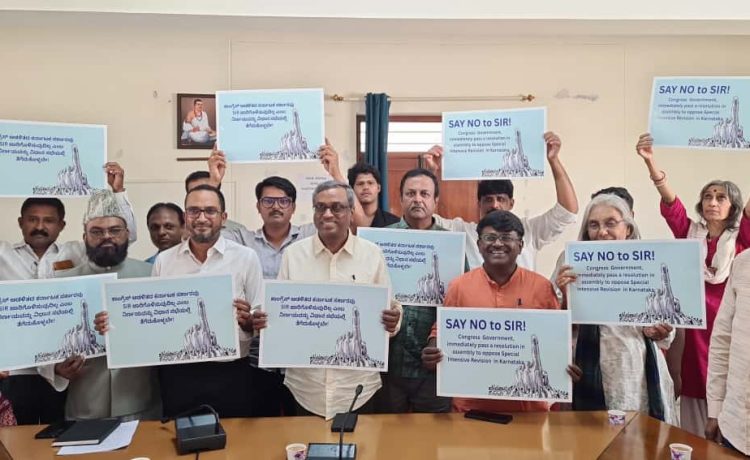

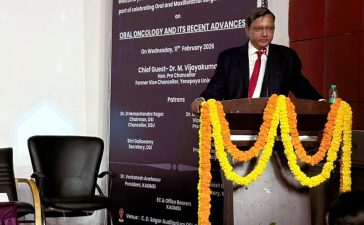

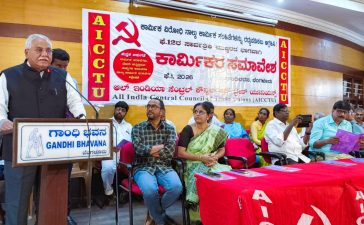






I really like your writing style, great info , thanks for posting : D.
Magnificent site. Plenty of useful info here. I am sending it to several friends ans also sharing in delicious. And obviously, thanks for your sweat!